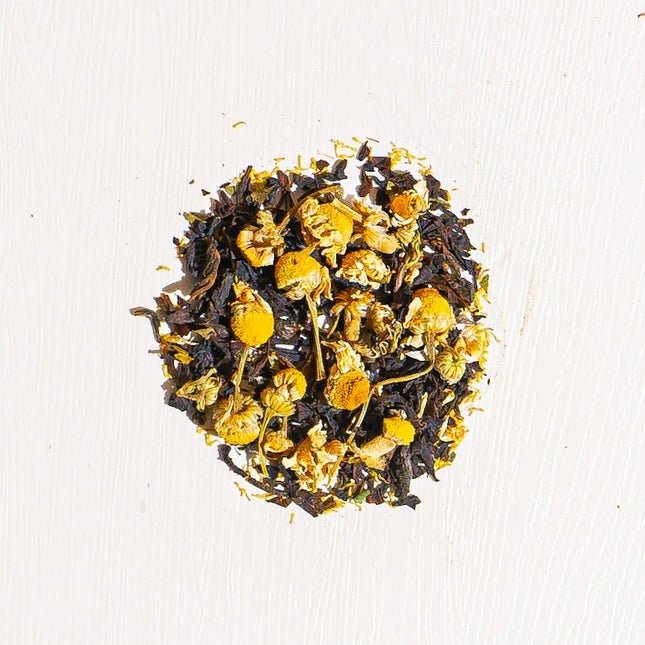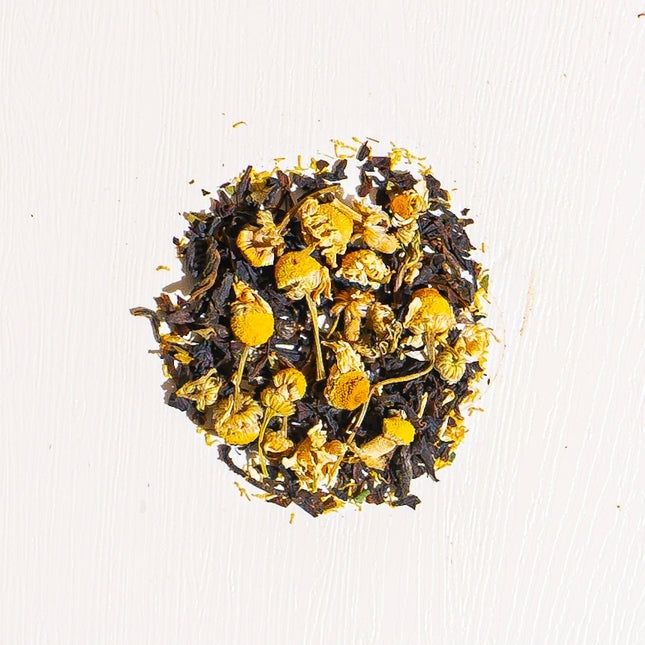Coronation Tea
This tea supports the Ethical Tea Partnership
All Camellia sinensis in our blends contributes to a fairer, more sustainable tea industry.
CAFFEINE CONTENT | HIGH
Cup per oz
10-12 cups per 1 oz
Couldn't load pickup availability
 1-2
1-2



 4-6 mins
4-6 mins
 1-2
1-2

 205-212°F
In 475 ml (8oz)
205-212°F
In 475 ml (8oz)

 4-6 mins
4-6 mins

Very good , high price but zero chemicals and additives .
Love your teas!
I originally found this tea in a tea shop in Santa Fe while on vacation. For four years I ordered it through them and just last spring they discontinued it. Strangely coincidental I found Culinary Teas just before I was going to order from them. I was worried the tea wouldn't taste the same, but it does. The combination of a quality black tea and camomile is perfect. The camomile adds a lovely bouquet to the black tea. They are synergistic. This is my favorite black tea of all time and drink it every day. It is very difficult to find and am grateful Culinary Teas carries it.
Far and away our favorite afternoon tea, smooth and tasteful. WE prefer with a just a pinch of Earn Gray in our 4 cup put.
Wonderful back tea. You can taste the high quality teas. There is a very slight honey taste. The camomile is not over powering.


